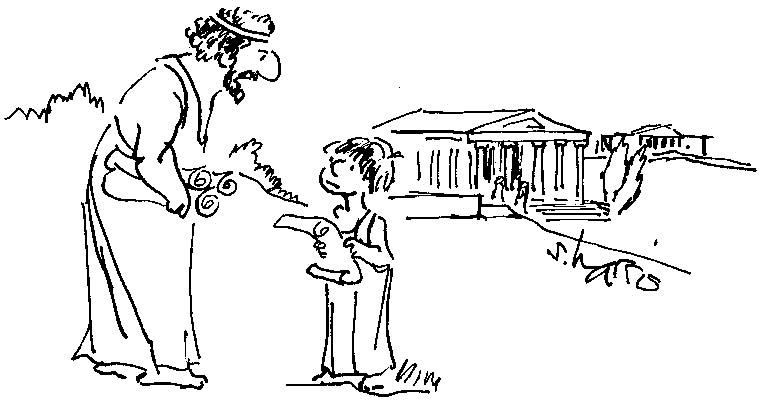The hotly tipped new Men’s Hour programme on Radio 5 Live sounds so 21st century.
The hotly tipped new Men’s Hour programme on Radio 5 Live sounds so 21st century. Its presenter Tim Samuels promises a potent mix of emotional candour (inspired by Tony Soprano’s sessions on the couch) combined with, and I quote, ‘the intelligence’ of Woman’s Hour. So are women at long last truly going to be credited with thinking power and talent while male idols such as Jamie Cullum and José Mourinho are to provide merely therapeutic gravitas? I wish. Read the prospective programme contents, produced by a team from BBC 6 Music, and the seven-part ‘pilot’ could have come straight out of the naughty Nineties, a sort of Men Behaving Badly crossed with Top Gear or an early edition of Loaded magazine. Testicles, sexual power and hypochondria have all been given top billing, with a token woman being allowed on each week to speak her mind (starting off with Jenni Murray of WH).
I’m pretty sure an earlier attempt to provide a male equivalent of Woman’s Hour was dreamt up by Radio 4 about 15 years ago. It lasted I think for about a month before disappearing from the airwaves in a haze of burnt fuel and stale aftershave. But there’s no mention of it anywhere that I can find, not even in David Hendy’s excellent history of the station — perhaps because it was such an embarrassment. Does anyone else remember listening to this or have I imagined it all in a fit of gender-swapping confusion?
Meanwhile, the digital debate is hotting up with letters to the papers pleading with the public not to buy digital sets (notably from the chief executive of one of the commercial local radio networks whose stations at the moment can only be received on FM). Last week Ed Vaizey, the new culture minister, declared that government policy has changed from deciding a date when the FM signal will be switched off (provisionally set at 2015) to providing an ‘action plan’ for when it will happen. So should we be replacing our beloved Roberts and trying to find a car with a digital radio fitted as standard? It’s all far too confusing. Vaizey’s muddled message (‘the government is committed to digital …but listeners will decide when the switchover will happen’) will only deter us from going out to spend money on something that we’re not even sure we’ll be needing in a few years’ time.
The fact is digital is not all that great — and it’s expensive. When it works, the signal is brilliantly clear. But too often it breaks up, or is just unattainable. It’s just like mobile phones: when you most need to use them (having broken down on a single-track road in the middle of the Isle of Mull) you simply can’t get a signal. The answer most probably lies in the internet, which I’m now beginning to suspect is how most young people access the radio they want to hear. Digital looks more and more like your old cassette recorder lingering in the attic, unused and unloved.
Yet radio itself looks stronger and tougher than TV in this latest round of the technology wars, giving us everything from the music we want to hear to stuff that makes us stop and think. Sunday night’s play on Radio 3, Sarah and Ken by Rebecca Lenkiewicz, was a searing and utterly believable account of life in an old-fashioned mental hospital. Ken has been visiting his ‘sister’ Sarah for years, and as the play unfolds we discover why she’s there and why she’s such a difficult ‘patient’. The plot itself made me uneasy. It was too predictable and too slick. There is no logic to mental illness, no explanation, not necessarily a cause; that’s what makes it so scary. But the writing itself about institutional life and the way it distorts reality was spot-on, and Annette Crosbie’s performance as Sarah was a tour-de-force of restrained emotion. ‘You want to be happy, don’t you?’ asks the doctor. ‘You throw these words around,’ replies Sarah, with such a crisp edge to her voice.
Janice Okoh’s afternoon play on Radio 4 on Friday, SE8, was much less accomplished as a drama but the dialogue was so raw, so real, taking us inside the minds of the young people living on the fringes of Peckham in London SE8, that it won me over. Rita is trying to find witnesses to her daughter’s murder, shot in a nightclub at 2.15 in the morning. She knows that Donna was there on the night but has to convince her to come forward as a witness. Rita and Donna’s story was cleverly intercut with short, sharp, staccato revelations of life among the young men who end up carrying knives and acting out in gangs as a form of self-protection. It’s not about education, Rita realises. ‘They’re educated in survival …’ When she finally breaks through to Donna it’s by listening, and listening without an agenda. How else?






Comments